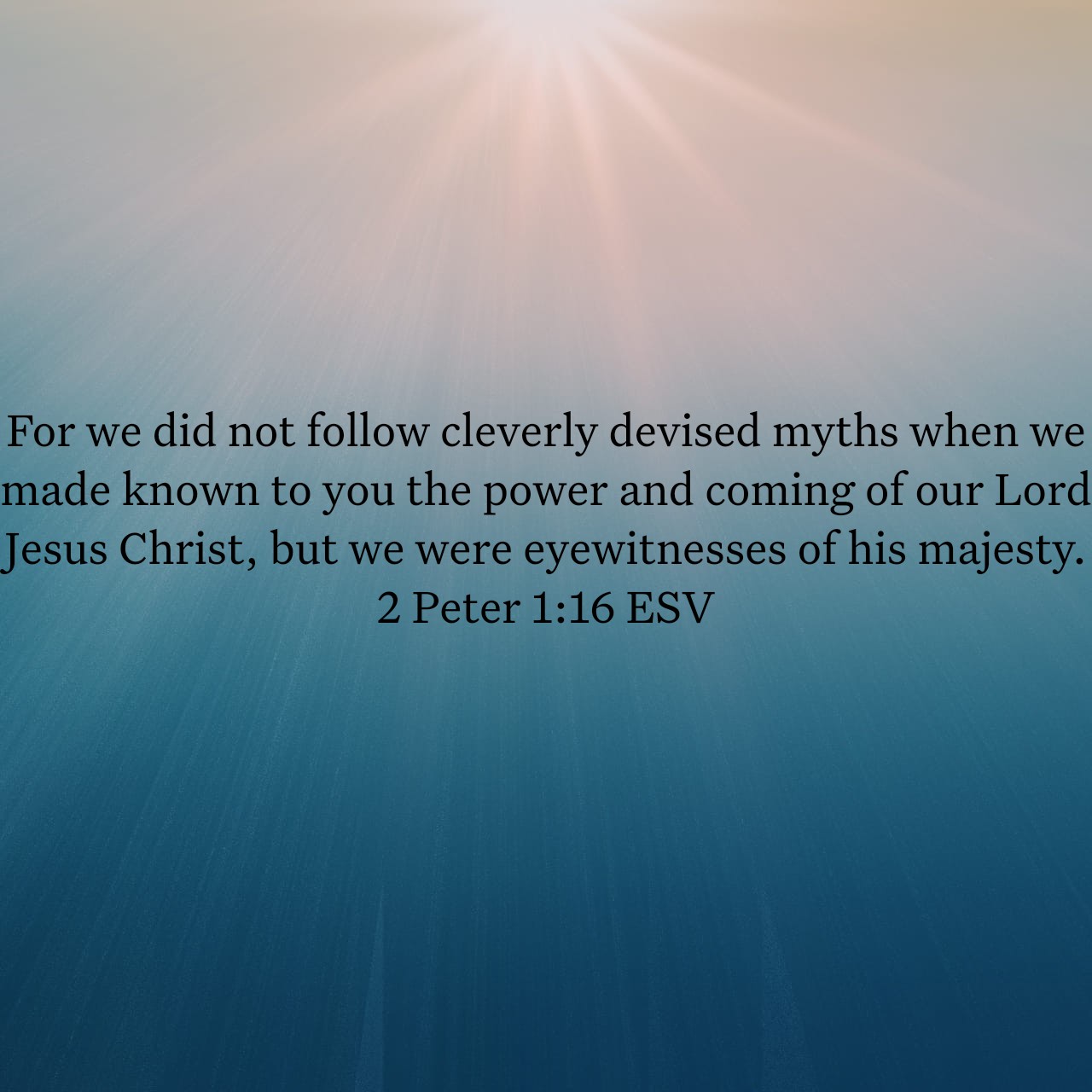Devotional 27 September 2025

Peter reminds his readers that the gospel does not rest on human imagination or persuasive storytelling. Unlike the false teachers who spread myths (2 Pet. 2:1–3), the apostles proclaimed what they had seen and heard. Peter himself was present at the Transfiguration (Matt. 17:1–5), where the Father declared from heaven that Jesus is His beloved Son. This testimony was not Peter’s personal interpretation or emotional impression, it was God’s own voice confirming the truth about Christ.
This humility stands out. Peter could have claimed authority from his closeness to Jesus, from his leadership in the early church, or from his personal insights. Instead, he grounds his witness in God’s revelation. His authority is not self-made but Spirit-confirmed. In the same way, Paul wrote that his gospel was not taught by man but received through revelation from Christ (Gal. 1:11–12). Our faith itself is not a product of human effort or intellect but a gift of God (Eph. 2:8–9).
The glory revealed on the mountain was not only a moment in history but a preview of the glory that will be revealed at Christ’s return (John 17:24). Just as the disciples heard the voice of God affirming the Son, so faith comes today by hearing the Word of Christ (Rom. 10:17). Evangelism, then, is not about crafting clever arguments or mimicking the world’s philosophies, but about bearing faithful witness to the eternal, unchanging Word of God (Heb. 4:12).
Peter’s testimony calls us to rest our faith not in ourselves but in the God who reveals His Son. As we share the gospel, we do so with confidence, not in our ability, but in the living voice of God, who still declares: “This is my beloved Son.”